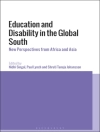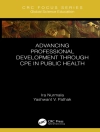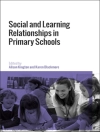Participation can be a double-edged sword in that it can be used to bind people into agendas and policies they have little control over or it can help enable them to give voice to real and significant issues. Drawing on the work of Raymond Williams, genuine participation has to be an open and democratic process which enables all to contribute to the creation of meanings. Adult education in communities can then be involved in the process of creating ‘really useful knowledge’, that is, knowledge which enables people – individuals and collectivities who experience systematic forms of oppression, domination and exploitation – to think about, analyse and act on their situation individually and severally. By drawing on contemporary accounts of emancipatory action and participatory research the author elaborates on the role of adult educators in this context. (From the Preface)
This book tries to reflect on adult education and its close relationships with communities. It is a modest attempt to maintain adult education in the scope of the community life against the growing schooling, the focus on employability, and on the labour market. In the last years it seems that adult education has become a kind of provider of diplomas, skills and competences and has forgotten its role to enlighten individuals and help them to share their community life with an abundance of richness, diversity, sadness and happiness.
Adult Education is intrinsically connected to daily life, and the life that individuals constantly edify in their interactions. If adult education is connected to daily life, one of the major tasks is to recover this feeling and to link daily life and education. I think that at present time, in a moment of intense reductionism, reality is usually presented as very plain, losing its complexity and diversity that are related to the fact that life is being lived everyday by men and women as creators and relational beings.
Table of Content
Preface; Introduction; Claiming Adult Education; Introduction; Lifelong Learning and the Knowledge Era?; Éducation Permanente: Creating Hope; Adult Education for Emancipation?; On Literacy and Participation; Introduction: A Multidisciplinary Approach; What Are Literacies?; Who Are the Illiterate?; In the Beginning Was the Spoken Word; The Transition from Spoken to Written; The Consequences of the Acquisition of Literacy; The Participatory Literacy; The Epistemology of Everyday Knowledge; Introduction; Diverse Knowledge; The Act of Knowledge; The Concept of Activity and the Contributions of Socio-Cultural Psychology; Knowledge Co-Creation in Practice; Knowledge as Ideology: Knowledge, Power and Participatory Research; The ‘Research Traditions’ and the Human Interest; Research Living Communities: Participatory Research as Theory, Methodology and Ideology; Introduction; Origins; Action Research; Definition and Characteristics of Action Research; Action Research vs. Participatory Research?; Participatory Research. Definition and Characteristics; An Ethical and Non-Technical Approach; Methodology; Constituent Elements; Participatory Research as Research; Research as an Educational Act: Education as a Process of Enlightenment; Participatory Research for Social Change; Becoming Citizens through Adult Education; Introduction; Living in Communities: Democracy, Participation, Citizenship; Methodological Approach; Institutional Assignment; The Democratic Experiment. Some Experiences from the Participatory Budget Experiment; Lessons Learned; Southbound: Recovering the Role of the Adult Educator; Introduction; Experts and Communities; Mediation Processes; The Ethics of Teaching; Power and Authority; Diverse Models to Break the Mould; References; Index.












